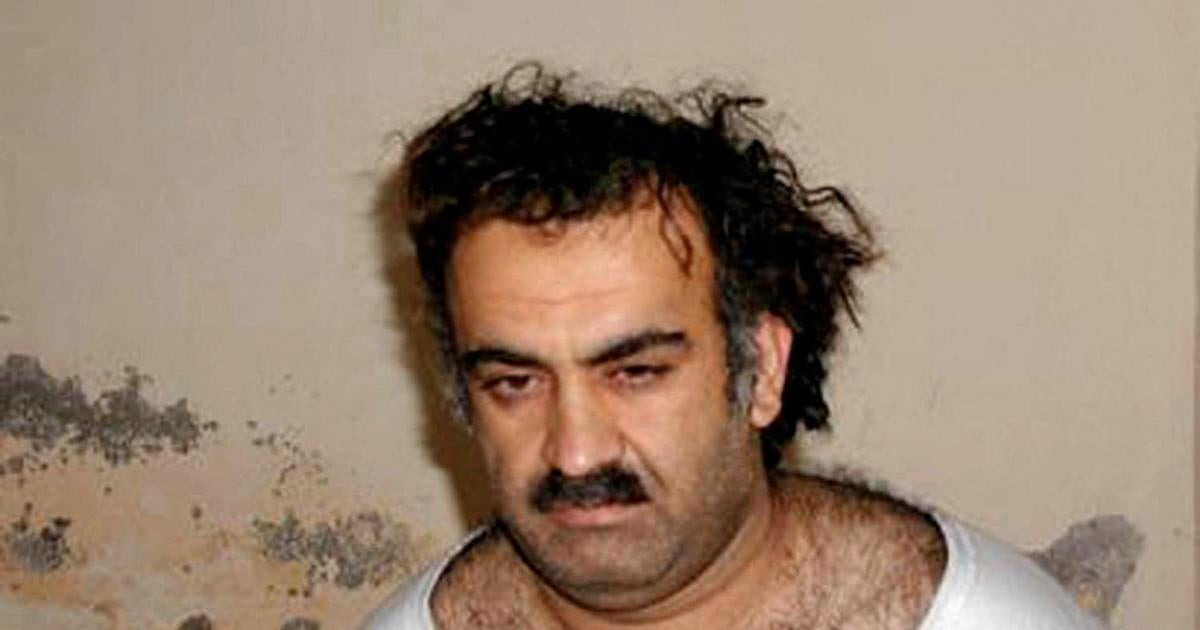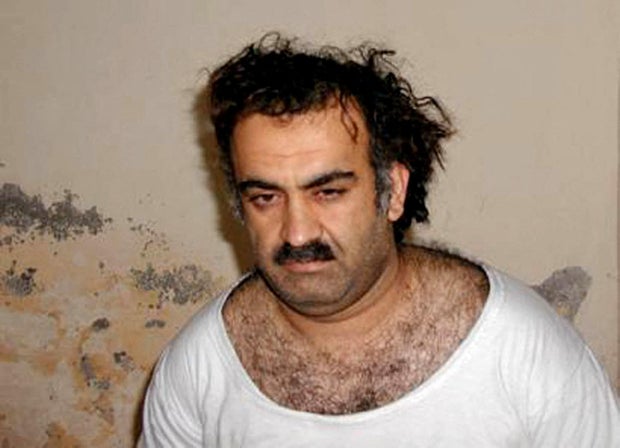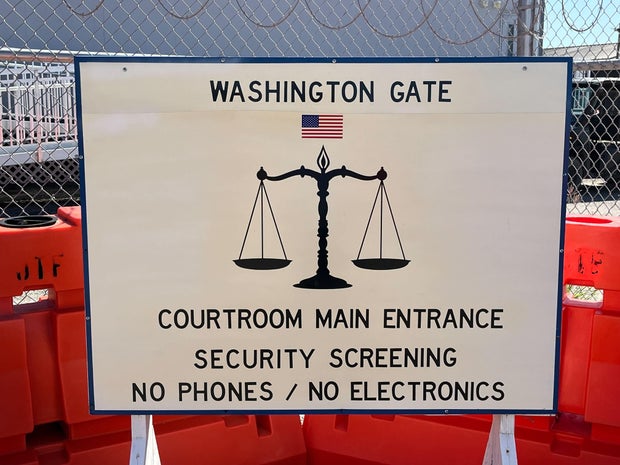The U.S. government has filed a motion seeking to stop a military tribunal from accepting the plea agreements offered to three men accused of planning the Sept. 11, 2001 attacks, including alleged mastermind Khalid Sheikh Mohammed.
HO/AFP via Getty Images
The Justice Department filed its motion in the Washington, D.C. Circuit Court of Appeals Tuesday, asking the court to prohibit the war tribunal in Guantanamo Bay from moving forward with the plea agreements negotiated last summer. Government attorneys also asked the appeals court to stay the proceedings — including a plea hearing for the attacks’ alleged mastermind Khalid Sheikh Mohammed set for Friday — while the request is considered.
“The allegations against the respondents set forth their extensive roles as the counselors, commanders, and conspirators in the murder of 2,976 people, the injury of numerous civilians and military personnel, and the destruction of property worth tens of billions of dollars,” the filing said, arguing later that “this Court should issue a writ of mandamus and prohibition to the military commission directing it to recognize that the Secretary validly withdrew from the pretrial agreements with the respondents and prohibiting the military commission from conducting hearings in which the respondents would enter guilty pleas pursuant to the invalid pretrial agreements.”
CBS News / Eleanor Watson
Last summer, Mohammed, and two other defendants reached deals that would have enabled them to plead guilty to their alleged roles in the 9/11 attacks in exchange for allowing them to avoid the death penalty.
Shortly afterwards, Defense Secretary Lloyd Austin tried to revoke the deals, saying in a memo that “in light of the significance” of the decision, he alone should have the authority to approve the plea deals instead of a subordinate authority, who accepted the deals.
The judge in the 9/11 case and then a military appeals court ruled against Austin and said he had weighed in too late. Following the decision by the military appeals court, the Defense Department said it was considering its options and whether to go to a higher court, as it now has.
There are two other defendants in the case, but one hasn’t negotiated a plea deal, and the other has been ruled mentally unfit to stand trial.
According to the motion filed Tuesday, the plea agreements, which are still under seal, would have the three defendants plead guilty to the seven charges against them that include murder, conspiracy and terrorism as well as an eighth charge, intentionally causing serious bodily injury.
When asked in November about why he had tried earlier in the year to revoke the plea deals, Austin said, “I thought at that point in time that it was important enough that I should be the person to make the decision on this. And I still feel that same way. Again, I won’t comment on anything that could happen in the future, but again I will just emphasize that I still feel the same way.”



